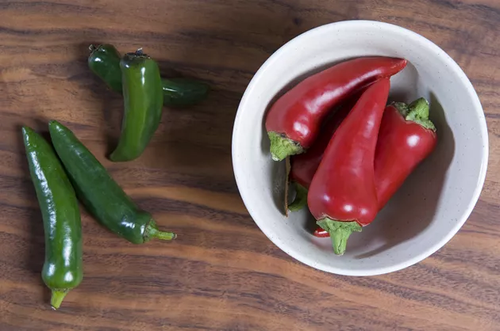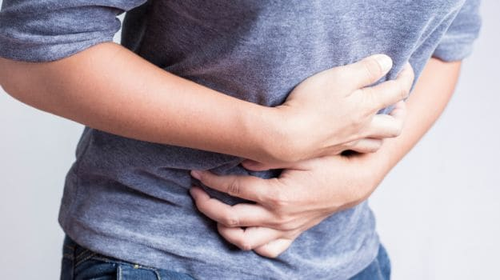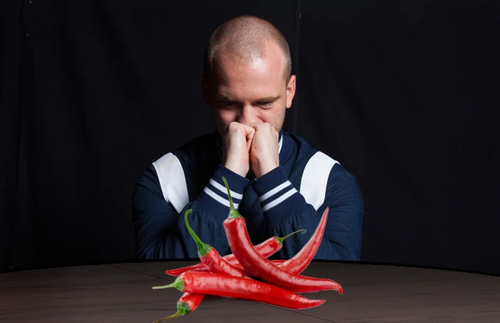How to Remedy for Stomach Pain After Eating Spicy Food
At least everyone you know loves adding spices to their food. The reason is simple: flavor is a crucial factor in any delicacy. Conveniently, there are more and spicier sauces and seasonings used in different foods. Chile peppers, curry, and garlic are among the commonly used seasoning ingredients for popular restaurant dishes, family favorites, and snacks. Despite their flavor, there are more and more people who have experienced stomach pain after eating spicy food. Notably, this symptom does not occur in everyone. So, what is it that makes some people more susceptible to stomach pain after spicy food than others? In this article, we will strive to explain how spicy foods are related to stomach pains, and how you can treat and prevent this condition.

How does spicy food cause stomach pain?
Ideally, spicy foods should not cause any problems to an individual with a normal gut. Rarely do spicy foods cause ulcers. However, the effects of spicy foods are more apparent in individuals with gastrointestinal disorders such as inflammatory bowel disease, gastritis, peptic ulcer disease and certain cancers of the gut. But how exactly does spicy food stomach ache occur?
1. Capsaicin
Chile pepper is one of the major causes of stomach pain after eating spicy food. Spicy foods containing Chile pepper have a characteristic burn that can be traced to capsaicin, a naturally occurring chemical found in Chile pepper.
What capsaicin does is that it causes irritation to the stomach surface, activates pain receptors and sends stimuli to the brain which are then interpreted as stomach pain. In healthy individuals, there is a layer of mucus lining protecting the stomach from irritation by capsaicin.
In individuals with gut problems such as ulcers, gastritis, or inflammatory bowel disease where the protective lining is damaged, spicy food stomach ache is common. But there are some concepts that may seem contradictory. Most people argue that capsaicin actually protects against stomach pain.
Well, that's true. However, the mechanism is different. Studies have shown that capsaicin prevents acid secretion, improves blood flow to the stomach lining and heals ulcers. The point here is that long-term use of capsaicin can treat stomach pain that is present even if you don't take spicy food – like pain due to ulcers. But in the short term, capsaicin will cause irritation and pain.
2. Symptoms that spicy food can cause
Symptoms from spicy foods mainly affect the gut. For instance, spicy foods can affect the muscles at the lower end of the esophagus (food pipe) and cause acid reflux which is commonly referred to as heartburn.
Other complications such as nausea and vomiting may also occur. Reports have also shown that spicy foods can cause irritable bowel syndrome and weight loss. Nevertheless, stomach pain is usually the commonest symptom associated with eating spicy food.

How can people relieve this kind of pain?
Having stomach pain after eating spicy food does not automatically disqualify you from eating spicy food ever again. There are ways you can implement to help reduce or alleviate the pain you may be feeling. Here is what you can do:
1. Food
-
Ginger root: Spicy foods are known to cause excess stomach gas that exacerbates stomach pain. When you eat the ginger root, it will prevent the formation of stomach gas and you will not be predisposed to stomach pain.
-
Peanut butter or olive oil: These foods are abundant in fat which can form a protective layer of the injured area of stomach lining thereby reducing spicy food stomach ache.
-
Fruits and vegetables: Fruits, such as bananas, and vegetables can help to neutralize the levels of capsaicin in your food. As a result, your predisposition to stomach pain after eating spicy food will reduce.
-
Sugar: Sugar helps to reduce the pain by increasing the water volume in the gut. This not only neutralizes acids but also helps to improve digestion with easy bowel emptying.
2. Drink
-
Yogurt smoothie: Yogurt smoothie is soft and is a perfect coat to protect the damaged layers of the gut from irritants that may cause stomach pain.
-
Peppermint Tea: Studies have shown that peppermint is able to tone gut muscles. This prevents reflux and also enhances the process of digestion. Peppermint helps reduce the symptoms caused by spicy food.
-
Citrus juices: Citrus juice characteristically antagonizes capsaicin thereby preventing it from causing irritation to the stomach lining.
3. Medicine
-
Acid reducers: If you are having stomach pain after taking spicy food, chances are that you have a preexisting condition that may be worsened by excess acid in your stomach. This acid can either be neutralized by antacids, or its production can be impaired by prescription medications such as omeprazole.
-
Protective agents: Medications such as bismuth compounds help provide a protective coating over the stomach surface and prevent damage by acids or by capsaicin.
4. Call the doctor if it is necessary
There are several things that can go wrong to cause stomach pain. If you suspect that your stomach pain requires a doctor's attention, you'd do well to call a doctor immediately. Watch out for accompanying symptoms such as stomach pain with vomiting, nausea and or diarrhea.

Prevention of stomach pain
Sometimes it is more convenient to prevent your symptoms from occurring instead of waiting for them to occur then struggle to treat them. Here is how you can prevent stomach pain:
1. Make sure your stomach isn't empty
A full stomach provides an additional coating to the stomach lining and prevent damage to the stomach wall by acids.
2. Avoid surprises
Only eat what you are sure of. Sometimes you may eat strange spices that you are not accustomed to and end up having stomach pains.
3. Gradual condition your palate
Most people can't eat without spices. If you are such a person but you react to the spices, start quitting spices bit by bit until you are accustomed to food without spices.

Summary
Having stomach pains after eating spicy foods is not unusual. However, sometimes it may be more serious than just a mere stomach ache. The good news is that you can prevent and/or treat stomach pain after eating spicy foods. Here is a video to help you understand more about this topic.
